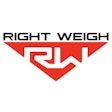Several suppliers discussed their involvement in, and the importance of, industry cooperation and adoption of product standards as part of a briefing, “Why Your Colleagues and Competitors are Adopting Product Information Standards,” sponsored by Pricedex Software, during Heavy Duty Aftermarket Week (HDAW) 2019 in Las Vegas last week.
“There is a new paradigm. We are witnessing dramatic changes in our traditional market structures in the heavy-duty aftermarket,” said Terence O’Reilly, president and CEO, Pricedex Software. “E-commerce will and is changing our sales and distribution model. There are new entrants to the marketplace. Some more disruptive than others but, collectively, are causing every CEO and marketing executive to think about what to do moving forward.”
O’Reilly said the omnichannel tends to commoditize, so what does the industry do to protect brand equity. “The $64,000 question is will e-commerce disrupt your business? Will it be an opportunity? If we get on it, we will manage the disruption and it will be an opportunity,” he said.
He added, “Product information standards will be one of the main differences between just automation of the same level of mistakes, same levels of returns, etc., [versus] leading forward with effective, efficient e-commerce. Good product information management will be important in that equation.”
The standards come from the collaborative effort of industry subject matter experts and the underlying objective shared by all of them to try to find “content communication” by all contributors that will best serve the end user, whether it’s a large fleet or a single independent trucker, O’Reilly said.
More than 70 companies are participating in the initiative and even more support it, he said. O’Reilly added, “But there are still ample opportunities for additional participation in this important initiative.”
Following O’Reilly’s opening remarks, supplier representatives from Dana, Bendix, Gates and Grote explained why their respective companies are on board.
“In light of continued success of companies like Amazon and the emergence of the millennial generation into the workforce, it became apparent to us we needed to do something to keep our brands relevant. When we launched our e-commerce portal in 2017, we quickly evolved our vision to a full-time ecosystem that provides great product and service to our various customers,” said Daniel Griffin, senior director, global aftermarket, Dana.
“Great data management and the ease of use at the counter supports the right part choice at the right time. This, in turn, drives fewer returns that our channel partners have to process,” Griffin said. “Dana has made a commitment to the combination of product standards and real-time commerce in the interest in easing the buyer journey. Product standards are a great conduit making it easier to do business.”
Jerry Conroy, North American regional vice president, aftermarket sales, Bendix, also said his company wanted to be easier to do business with and that goal relies on a digital strategy. “The foundation of digital transformation starts with the data,” he added.
Bendix decided to be one of the initiative’s subject matter experts because the company wanted to have “a seat at the table” when data standards are being developed so it could help determine what and how its products would be categorized, Conroy said.
“We think the common data standards will benefit our distribution partners,” Conroy said. “We want to give all of our customers access to better information that will support their parts search, maintenance needs, service work, installation — all of those things that go into using and consuming our parts.”
He added that a data standard doesn’t mean the data is going to be available to everybody. “We as a supplier still controls who gets that data. “[A data standard] just means we’re all going to speak in a common language.”
Others on the supplier panel also discussed how a standard creates a common language.
“With the breadth of products and the amount of products coming in, if we’re not all talking the same language … it can be quite confusing,” said Mark Osterman, Gates product group manager, North American automotive aftermarket. Gates is another subject matter expert working on the product standards.
“The product data is as important as the product itself. If the language isn’t the same, that’s going to cause problems throughout the industry. At Gates, we feel it’s very important that we all band together as suppliers and distribution partners and [support] heavy-duty standards.”
Chris Cammack, global market manager, aftermarket, Grote, said, “The winners and losers in the supplier race in the next 10 to 15 years are going to be heavily decided by who can supply the best data. The interaction between the distributor and the supplier all comes down to whether we can we supply the end user with the right data — and the best way to do that is to speak a common language.”
![Image[73]](https://img.truckpartsandservice.com/mindful/rr/workspaces/default/uploads/2026/02/image73.3mOLWA71AK.png?auto=format%2Ccompress&fit=crop&h=112&q=70&w=112)










